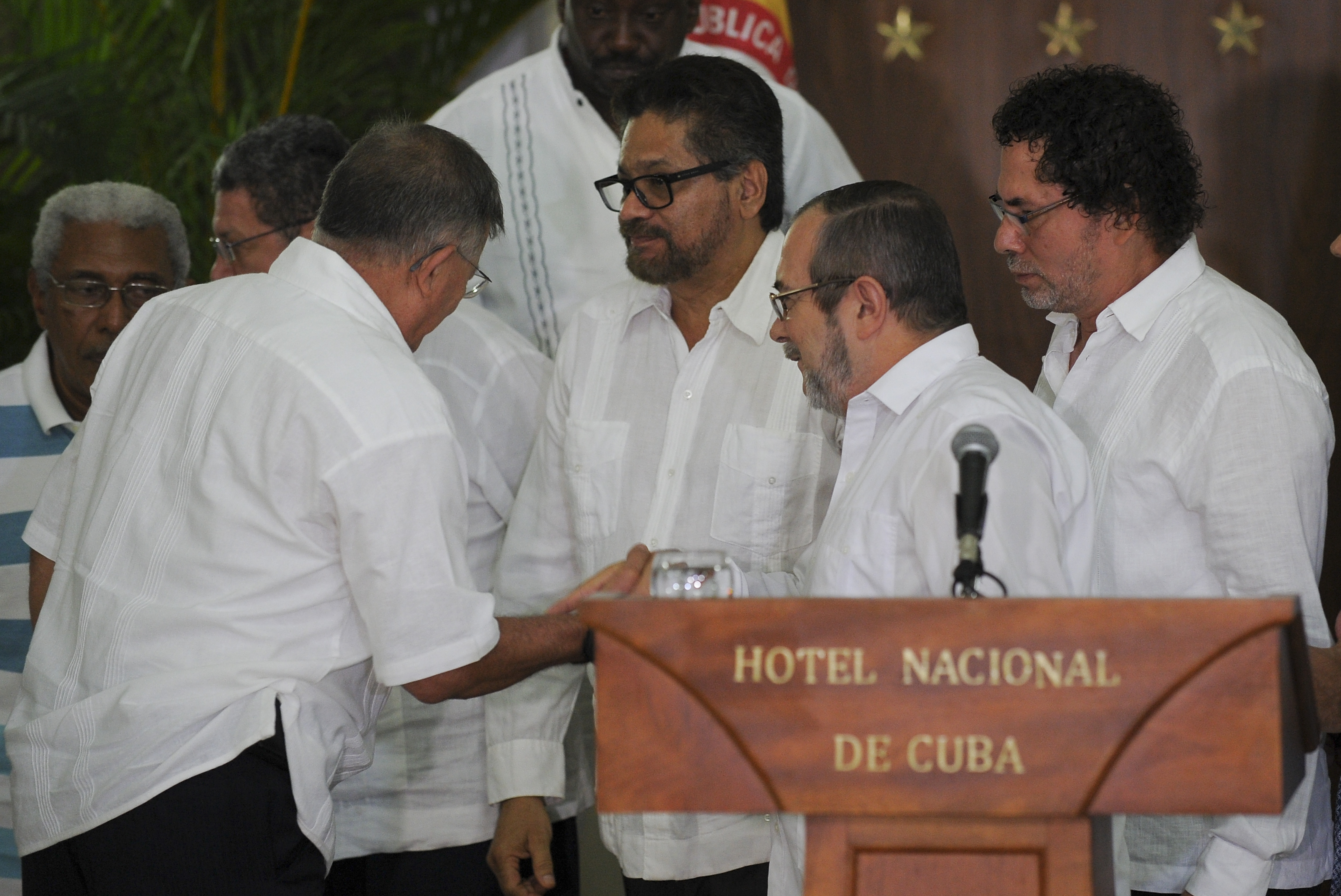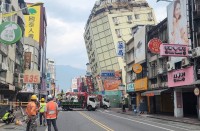
Colombia’s FARC rebel force ordered a definitive ceasefire late Sunday as part of an accord to end 52 years of conflict with the government. / AFP PHOTO /
by Alina DIESTE
BOGOTA, Colombia (AFP) — A historic midnight ceasefire on Sunday is set to end a 52-year-old war between the Colombian state and FARC rebels.
Hundreds of thousands of Colombians have died since 1964 as rebel armies and gangs battled in the jungles in what is considered Latin America’s last major civil armed conflict.
The Revolutionary Armed Forces of Colombia (FARC) on Sunday issued the order for its fighters to observe the cease fire from midnight (0500 GMT Monday).
“I order all our commanders and units and each one of our combatants to definitively cease fire and hostilities against the Colombian state from midnight tonight” top FARC leader Timoleon Jimenez said in a declaration before the media.
“The end of the conflict has arrived!” Santos wrote on his Twitter account Friday, after signing a decree to halt military operations against the FARC.
The measure goes into effect following the conclusion on Wednesday of peace negotiations under way in Havana since November 2012.
Peace “is beginning to be a reality,” Jimenez, whose real name is Rodrigo Londono, wrote on Twitter.
The FARC declared a unilateral ceasefire in July 2015. But Sunday night’s ceasefire is the first in which both sides have committed to a definitive end to the fighting.
“The ceasefire is really one more seal on the end of the conflict. It is the test of fire,” said Carlos Alfonso Velazquez, a security expert at the University of La Sabana.
Demobilization
Santos and Jimenez are due to sign a final, full peace agreement some time between September 20 and 26.
Santos has said the signing could take place at UN headquarters in New York, or in Havana or Bogota.
The ceasefire and definitive end of hostilities will be followed by a six-month demobilization process.
Guerrilla fighters will gather at collection points and give up their weapons under UN supervision.
Beginning Monday, Villegas said, “corridors” will be identified for the FARC’s estimated 7,500 guerrillas to move toward demobilization zones.
Guerrillas who refuse to demobilize and disarm “will be pursued with all the strength of the state forces,” Santos told El Espectador newspaper.
Before the demobilization, the FARC will convene its leaders and troops one last time before transforming into “a legal political movement,” according to a statement made public on Saturday.
The rebel gathering will be held from September 13-19 near the former guerrilla stronghold of San Vicente del Caguan in southern Colombia.
Attending will be 200 rebel delegates, including the FARC’s 29-member central committee. International guests and journalists were also invited.
Peace referendum
On October 2, Colombians will go to the polls to cast ballots in a referendum that Santos hopes will endorse the peace agreement.
Under a July ruling by the Constitutional Court, approval requires a majority “yes” vote by at least 4.4 million people, or 13 percent of the electorate.
“A victory for the ‘Yes’ vote will be a mandate from citizens for future governments,” Santos was quoting as saying by El Espectador.
“The plebiscite will grant the political legitimacy that is needed.”
He said the exact question that will be posed to voters in the referendum would be announced “in the coming days.”
“We are on the verge of perhaps the most important political decision of our lives,” Santos said in a speech on Saturday.
Deadly conflict
The territorial and ideological conflict has drawn in various left- and right-wing armed groups and gangs.
Efforts to launch peace talks with a smaller rebel group, the National Liberation Army, have yet to bear fruit.
But with the country’s biggest rebel group, the FARC, ordering a definitive ceasefire, the conflict appears to be reaching an end.
The conflict has left some 260,000 dead, 45,000 missing and 6.9 million people uprooted from their homes.
The Senate has estimated the cost of implementing the peace accord at $31 billion over the coming decade.
Santos said the cost would be funded by the state, private sector and international aid.
© 1994-2016 Agence France-Presse






